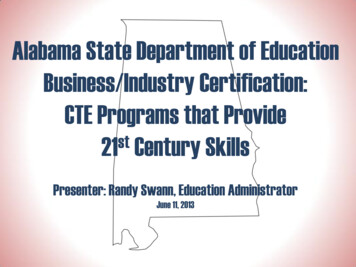
Transcription
GOVERNMENT OF THE DISTRICT OF COLUMBIAOFFICE OF THE INSPECTOR GENERALSTATE EDUCATION OFFICE*REPORT OF INSPECTIONJULY 2007CHARLES J. WILLOUGHBYINSPECTOR GENERAL* As of June 12, 2007, the State Education Office was renamed the Office of the StateSuperintendent of Education.OIG No. 07-0022-SEOJULY 2007
GOVERNMENT OF THE DISTRICT OF COLUMBIAOffice of the Inspector GeneralInspector GeneralJuly 2, 2007Ms. Deborah A. GistState Superintendent of EducationOffice of the State Superintendent of Education441 4th Street, N.W. – Suite 350 NorthWashington, D.C. 20001Dear Ms. Gist:Enclosed is our final Report of Inspection of the State Education Office (SEO). Comments from SEO onthe inspection team’s 18 findings and 37 recommendations are included in the report. Commentssubmitted by the Office of Finance and Resource Management in response to several of the report’sfindings are also included.In addition, we have enclosed Compliance Forms on which to record and report to this Office any actionsyou take concerning each recommendation. These forms will assist you in tracking the completion ofaction(s) taken by your staff, and will assist this Office in its inspection follow-up activities. We trackagency responses to all conditions cited and compliance with recommendations made in our reports ofinspection. We request that you and your staff establish response dates on the forms and advise us ofthose dates so we can enter them on our copies of the Compliance Forms. We know that in someinstances, things beyond your control such as budget decisions impact on trying to set specific deadlines.We request, however, that you assign target dates based on whatever knowledge and experience you haveabout a particular issue. Please ensure that the Compliance Forms are returned to this Office by theresponse date, and that reports of “Agency Action Taken” reflect actual completion, in whole or in part,of a recommended action rather than “planned” action.We appreciate the cooperation shown by you and your employees during the inspection and look forwardto your continued cooperation during the upcoming follow-up period. If you have questions or requireassistance in the course of complying with our recommendations, please contact me or Edward Farley,Deputy Assistant Inspector General for Inspections and Evaluations at (202) 727-2540.Sincerely,CJW/ldEnclosurecc:See Distribution List717 14th Street, N.W., Washington, D.C. 20005 (202) 727-2540
DISTRIBUTION:The Honorable Adrian M. Fenty, Mayor, District of Columbia (1 copy)Mr. Daniel M. Tangherlini, City Administrator, District of Columbia (1 copy)Mr. Victor Reinoso, Deputy Mayor for Education (1 copy)Mr. Neil O. Albert, Deputy Mayor for Planning and Economic Development (1 copy)Ms. Tene Dolphin, Chief of Staff, Office of the Mayor (1 copy)Ms. JoAnne Ginsberg, Director, Policy and Legislative Affairs (1 copy)Ms. Carrie Brooks, Spokesperson, Office of Communications (1 copy)The Honorable Vincent C. Gray, Chairman, Council of the District of Columbia (1 copy)The Honorable Carol M. Schwartz, Chairperson, Committee on Workforce Development and GovernmentOperations, Council of the District of Columbia (1 copy)Ms. Cynthia Brock-Smith, Secretary to the Council (13 copies)Mr. Robert Bobb, President, District of Columbia Board of Education (1 copy)Ms. Michelle Rhee, Acting Chancellor, District of Columbia Public Schools (1 copy)Ms. Linda Singer, Attorney General for the District of Columbia (1 copy)Dr. Natwar M. Gandhi, Chief Financial Officer (5 copies)Ms. Deborah K. Nichols, D.C. Auditor (1 copy)Ms. Kelly Valentine, Director, Office of Risk Management (1 copy)Mr. Jeffrey C. Steinhoff, Managing Director, FMA, GAO (1 copy)Ms. Jeanette M. Franzel, Director, FMA, GAO (1 copy)The Honorable Eleanor Holmes Norton, D.C. Delegate, House of Representatives Attention: DavidGrosso (1 copy)The Honorable Henry A. Waxman, Chairman, House Committee on Oversight and Government ReformAttention: Phil Barnett (1 copy)The Honorable Tom Davis, Ranking Member, House Committee on Oversight and Government Reform(1 copy)Mr. Phil Schiliro, Professional Staff, House Committee on Oversight & Government Reform (1 copy)The Honorable Danny K. Davis, Chairman, House Subcommittee on Oversight of Government Management,the Federal Workforce, and the District of Columbia (1 copy)Mr. Caleb Gilchrist, Professional Staff Member, House Subcommittee on Oversight of GovernmentManagement, the Federal Workforce, and the District of Columbia (1 copy)The Honorable Kenny Marchant, Ranking Member, House Subcommittee on Oversight of GovernmentManagement, the Federal Workforce, and the District of Columbia (1 copy)Ms. Tania Shand, Staff Director, House Subcommittee on Oversight of Government Management, the FederalWorkforce, and the District of Columbia (1 copy)The Honorable George Voinovich, Ranking Member, Senate Subcommittee on Oversight of GovernmentManagement, the Federal Workforce, and the District of Columbia (1 copy)The Honorable Daniel K. Akaka, Chairman, Senate Subcommittee on Oversight of Government Management,the Federal Workforce, and the District of Columbia (1 copy)The Honorable David Obey, Chairman, House Committee on Appropriations (1 copy)The Honorable Jerry Lewis, Ranking Member, House Committee on Appropriations (1 copy)Mr. Rob Nabors, Staff Director, House Committee on Appropriations (1 copy)The Honorable Robert C. Byrd, Chairman, Senate Committee on Appropriations (1 copy)The Honorable Thad Cochran, Ranking Member, Senate Committee on Appropriations (1 copy)Mr. Terrence Sauvain, Staff Director, Senate Committee on Appropriations (1 copy)The Honorable José E. Serrano, Chairman, House Subcommittee on Financial Services (1 copy)The Honorable Ralph Regula, Ranking Member, House Subcommittee on Financial Services (1 copy)The Honorable Barney Frank, Chairman, House Committee on Financial Services (1 copy)The Honorable Richard Durbin, Chairman, Senate Subcommittee on Financial Services and GeneralGovernment (1 copy)The Honorable Sam Brownback, Ranking Member, Senate Subcommittee on Financial Services and GeneralGovernment (1 copy)The Honorable Joseph Lieberman, Chairman, Senate Committee on Homeland Security and GovernmentalAffairs, Attention: Trina Tyrer (1 copy)The Honorable Susan Collins, Ranking Member, Senate Committee on Homeland Security and GovernmentalAffairs (1 copy)
Inspections and Evaluations DivisionMission StatementThe Inspections and Evaluations (I&E) Division of the Office of theInspector General is dedicated to providing District of Columbia (D.C.)government decision makers with objective, thorough, and timely evaluations andrecommendations that will assist them in achieving efficiency, effectiveness, andeconomy in operations and programs. I&E goals are to help ensure compliancewith applicable laws, regulations, and policies; to identify accountability,recognize excellence, and promote continuous improvement in the delivery ofservices to D.C. residents and others who have a vested interest in the success ofthe city.
TABLE OF CONTENTSEXECUTIVE SUMMARY . 1INTRODUCTION. 9Background.10Scope and Methodology .11Compliance and Follow-Up.12EMPLOYEE SURVEY . 13KEY FINDINGS. . 18Financial Oversight of Subgrants Is Inadequate.19GEAR UP Matching Contributions Inadequately Documented .23Employees Improperly Classified as Term Employees.26Ineligible SEO Employee Received Tuition Benefits .28AGENCY MANAGEMENT. . 31Imprest Fund Is Not Properly Managed .32Purchase Card Payments Are Improperly Allocated Among Programs .33NUTRITION SERVICES. . 36Oversight Lacking for Contracts between Organizations and Food Vendors .37Some Nutrition Services Participation Goals Not Met.47Disorganized File Room Poses Fire Hazard.50HIGHER EDUCATION FINANCIAL SERVICES. . 53Filing System and File Room Are Inadaquate.54EDUCATION PROGRAMS. 57Inadequate Oversight of Services to Youth Offenders.58GEAR UP Financial Reports Inaccurate .62GEAR UP Program Measures Inaccurate and Incomplete.65GEAR UP Lacks Space and Access to Schools .68GEAR UP Program Understaffed.71ELC Not Providing Reports or Advice to Mayor or City Council.73ELC Not State Approving Agency for Veterans’ Education Benefits .74ELC Granted Licenses to Ineligible Institutions .75OFFICE OF PUBLIC CHARTER SCHOOL FINANCING AND SUPPORT . 78POLICY, RESEARCH, AND ANALYSIS UNIT. 80State Education Office – July 2007TOC - i
TABLE OF CONTENTSAPPENDICES. . 82Appendix 1: List of Findings and Recommendations .84Appendix 2: Survey Questionnaire.90Appendix 3: Letters from SEO to Online Institutions Regarding ELC LicensingProcess .100State Education Office – July 2007TOC - ii
ORGANIZATION CHARTORGANIZATION CHARTState Education Office – July 2007
StateEducationOfficerLegal CounselHigher EducationFinancial ServicesD.C. Tuition AssistanceGrantD.C. LeveragingEducational AssistancePartnershipD.C. AdoptionScholarshipTuition AssistanceProgram Initiative forTemporary Assistancefor Needy Families(TANF)Nutrition ServicesNational School Lunchand Breakfast ProgramsChild and Adult CareFood ProgramFree Summer MealsProgramOperationsEducationProgramsGaining EarlyAwareness andReadiness forUndergraduatePrograms (GEAR UP)Education Licensureand CertificationThe Emergency FoodAssistance ProgramSpecial Milk ProgramFood DistributionProgramCommission on Foodand NutritionWorkplace andCommunity TransitionTraining forIncarcerated YouthOffendersOffice of PublicCharter SchoolFinancing andSupportDirect LoanFundCredit EnhancementPolicy, Research,and AnalysisState Advisory Panel forSpecial EducationMayor's LiteracyInitiativeCity BuildUniform Per StudentFunding FormulaTechnical AssistanceEnrollment AuditEducation PolicyImproving TeacherQualitySource: .asp (Last visited May 2007)
ACRONYMSACRONYMSState Education Office – July 2007
ACRONYMSAMAgency Management UnitCACFPChild and Adult Care Food ProgramCSOSACourt Services and Offender Supervision AgencyDCASDistrict of Columbia Adoption ScholarshipDCHRDistrict of Columbia Department of Human ResourcesDCLEAPDistrict of Columbia Leveraging Educational Assistance PartnershipDCPSDistrict of Columbia Public SchoolsDCTAGDistrict of Columbia Tuition Assistance Grant ProgramEDU.S. Department of EducationDPRDistrict of Columbia Department of Parks and RecreationELCEducation Licensure CommissionEOMExecutive Office of the MayorEPEducation ProgramsFAFSAFree Application for Federal Student AidFSAFederal Student AidFSMPFree Summer Meals ProgramGAOU.S. Government Accountability OfficeGEAR UPGaining Early Awareness and Readiness for Undergraduate ProgramsGEDGeneral Equivalency DiplomaHBCUsHistorically Black Colleges and UniversitiesHEFSHigher Education Financial ServicesHVACHeating, Ventilation, and Air ConditioningI&EInspections and EvaluationsState Education Office – July 2007
ACRONYMSIFBInvitation for BidITQImproving Teacher QualityNSNutrition ServicesNSLPNational School Lunch ProgramOCFOOffice of the Chief Financial OfficerOFOSOffice of Financial Operations and SystemsOFRMOffice of Finance and Resource ManagementOIGOffice of the Inspector GeneralOMBOffice of Management and BudgetOPCSFSOffice of Public Charter School Financing and SupportPRAPolicy, Research, and AnalysisRCCCRoanoke-Chowan Community CollegeRCIRivers Correctional InstitutionSEOState Education OfficeUSDAU.S. Department of AgricultureVAU.S. Department of Veterans AffairsWCTTIYOWorkplace and Community Transition Training for Incarcerated YouthOffendersState Education Office – July 2007
EXECUTIVE SUMMARYEXECUTIVE SUMMARYState Education Office – July 20071
EXECUTIVE SUMMARYBackground and PerspectiveThe Inspections and Evaluations (I&E) Division of the District of Columbia Office of theInspector General (OIG) conducted an inspection of the District of Columbia (District) StateEducation Office (SEO) during 2005-2006. The SEO’s mission is “to enhance educationalservices and opportunities that meet the life-long learning needs of all District residents [through] research, programs, and effective policy that ensure the equitable distribution andavailability of administrative, financial, and nutrition resources.” 1The team found the majority of SEO managers and employees to be dedicatedprofessionals committed to continuously improving program operations. The SEO is working tostreamline program application processes, improve program monitoring, and increase tuitionavailability and nutrition program participation. All managers and staff members werecooperative and responsive throughout the inspection.Scope and MethodologyOIG inspections comply with standards established by the President’s Council onIntegrity and Efficiency, and pay particular attention to the quality of internal control. 2The inspection focused on the management and operations of key areas, includingcompliance with federal and local legislative requirements as well as program rules, nutritionservices, education programs, tuition financial services, record keeping, and policy, research, andanalysis services. The team reviewed best practices recommended by the National Forum onEducation Statistics. 3The team conducted interviews, toured work areas and facilities, reviewed numerous filesand documents, issued an anonymous and confidential employee survey, and observeddemonstrations of key work processes. This inspection report contains 18 findings and 37recommendations. The SEO reviewed the draft of this report prior to publication, and itscomments follow each OIG recommendation. Agency responses are published verbatim. TheOIG does not correct an agency’s grammatical or spelling errors, but does format an agency’sresponses in order to maintain readability of OIG reports. Such changes are limited to font sizeand type, with the following exception: if an agency bolds or underlines text within its response,the OIG preserves these elements of q,534719.asp.“Internal control” is synonymous with “management control” and is defined by the Government AccountabilityOffice as comprising “the plans, methods, and procedures used to meet missions, goals, and objectives and, in doingso, supports performance-based management. Internal control also serves as the first line of defense in safeguardingassets and preventing and detecting errors and fraud.” STANDARDS FOR INTERNAL CONTROL IN THEFEDERAL GOVERNMENT, Introduction at 4 (Nov. 1999).3The National Forum on Education Statistics proposes principles of good practice to assist state and local educationagencies in producing and maintaining comparable and uniform data on education. The published Forum Guide toProtecting the Privacy of Student Information: State and Local Education Agencies provides a model for agenciesseeking to improve how they protect student information. See http://nces.ed.gov.2State Education Office – July 20072
EXECUTIVE SUMMARYCompliance and Follow-UpThe OIG inspection process includes follow-up with inspected agencies on findings andrecommendations. Compliance forms with findings and recommendations will be sent to theSEO along with this report of inspection. The OIG/I&E Division will coordinate with the SEOon verifying compliance with recommendations in this report over an established time period. Insome instances, follow-up inspection activities and additional reports may be required.FINDINGS AND RECOMMENDATIONSKey FindingsThe SEO and the Office of Finance and Resource Management (OFRM) do notprovide adequate financial oversight of federally funded subgrants. (Page 19) The SEOreceives federal funds from various grants and provides funding to other organizations assubgrants. The SEO is responsible for the administration of subgrants for Gaining EarlyAwareness and Readiness for Undergraduate Programs (GEAR UP), Workplace and CommunityTransition Training for Incarcerated Youth Offenders (WCTTIYO), and Improving TeacherQuality (ITQ). However, the SEO cannot adequately account for fund expenditures made bymany subgrantees. The OFRM provides comprehensive financial services for the SEO thatinclude processing subgrant payments and ensuring that grants are monitored. The SEO and theOFRM do not have written policies and procedures for monitoring the activities of subgrantees,and the SEO does not follow federal regulations to ensure that subgrantees are using funds onlyfor authorized purposes. Recommendations: (a) That the State Education Officer not certifyfuture payments to subgrantees until documentation is provided as to how previous subgrantshave been spent. (b) That the State Education Officer ensure that employees who monitor grantsare knowledgeable about the requirements, are trained in grants management, and have adequateoversight from agency management. (c) That the SEO and the OFRM create and implementwritten policies and procedures to ensure compliance with federal requirements for monitoringsubrecipients. (d) That the State Education Officer ensure that GEAR UP, WCTTIYO, and ITQsubgrants are audited.The SEO failed to document matching contributions and claimed ineligible expensesas matching contributions for the GEAR UP program. (Page 23) GEAR UP is a federallyfunded program to prepare youth from low-income areas for college. Federal regulations statethat at least half the costs of a GEAR UP program are to be paid with non-federal funds. Thiscan include in-kind contributions such as services provided to GEAR UP students. The SEOdoes not have adequate documentation for the majority of the matching contributions it hasclaimed for GEAR UP. In addition, the SEO has claimed more indirect costs 4 as matchingcontributions than are allowable under federal regulations. The OFRM is responsible forensuring oversight of SEO grants. However, the lack of written policies and procedures that4According to the webpage for the Office of the Chief Financial Officer of the Department of Education (ED),“Indirect costs represent the expenses of doing business that are not readily identified with a particular grant,contract, project function or activity, but are necessary for the general operation of the organization and the conductof activities it performs.” ml. Electricity and accounting expensesare examples of indirect costs. Id.State Education Office – July 20073
EXECUTIVE SUMMARYdescribe the two agencies’ roles has contributed to confusion over requirements for documentingmatching contributions. Recommendations: (a) That the SEO and the OFRM develop andimplement written policies and procedures outlining the responsibilities of each agency forensuring compliance with federal regulations on matching contributions. (b) That the StateEducation Officer ensure that employees who manage grants have knowledge of relevantregulations, are trained in grants management, and have adequate oversight from agencymanagement. (c) That the State Education Officer ensure that GEAR UP matchingcontributions are audited to determine compliance with matching regulations.SEO term appointment employees who perform permanent services have not beenconverted to career service status as required. (Page 26) The team found that a large numberof the SEO’s employees are term employees. Some employees’ status is not in compliance withthe City Administrator’s directive that instructs agencies under the Mayor’s authority to convertterm and temporary employees to permanent status, as appropriate, pursuant to the August 4,2004, Compensation Agreement between the Government of the District of Columbia andCompensation Units 1 and 2 (Agreement). Recommendation: That the State Education Officerwork with the EOM to ensure that the SEO is in compliance with the Agreement.An ineligible SEO employee received tuition assistance from the District of ColumbiaTuition Assistance Grant Program (DCTAG). (Page 28) An SEO manager approved theapplication of an ineligible SEO employee for tuition assistance, which enabled the employee toparticipate in the DCTAG program. Recommendations: (a) That the State Education Officerensure that all managers and employees are aware of their responsibility to process tuitionapplications in strict conformance with the requirements of the College Access Improvement Actof 2002. (b) That the State Education Officer consider devising an independent review processfor applications from SEO employees, family members, and acquaintances to avoid anyappearance of conflict of interest or favoritism.Agency ManagementThe SEO Does Not Use Imprest Fund Reimbursement Vouchers (Form 436). (Page32) The Office of Financial Operations and Systems (OFOS) established imprest funds (pettycash) for small purchases, employee reimbursements, and office supplies. According to Mayor’sMemorandum 82-29, “Imprest Fund Procedures,” dated May 28, 1982, cashiers must use Form436 to replenish the imprest fund. However, instead of using Form 436, the SEO uses an inhouse spreadsheet to capture agency disbursement information to support a request forreplenishment of the imprest fund. During an interview, the imprest fund cashier indicated thatshe was not knowledgeable about Form 436. Consequently, SEO’s imprest fund is not managedaccording to the procedures stated in Mayor’s Memorandum 82-29. Recommendations: (a)That the imprest fund cashiers immediately begin using required Form 436, as stated in Mayor’sMemorandum 82-29. (b) That the SEO cashier and alternate cashier become knowledgeable ofall imprest fund procedures.The SEO improperly allocates purchase card payments among its programs. (Page 33)Payments for items that individual SEO programs have charged to the agency purchase card arefrequently grouped together. The total is then divided evenly among the programs, includingState Education Office – July 20074
EXECUTIVE SUMMARYfederally funded programs, regardless of the individual amounts spent on each program. Neitherthe OFRM, which makes payments on behalf of the SEO, nor the SEO reconciles programpurchases and payments. When the SEO misallocates purchase card payments to federallyfunded programs, it is charging unallowable expenses to federal grants, contrary to criteria inOMB Circular A-87. Recommendations: (a) That the State Education Officer reconcile eachprogram’s purchases with payments for the SEO purchase card. (b) That the State EducationOfficer develop and implement written policies and procedures to ensure that program purchasesare regularly reconciled with payments for the SEO purchase card.Nutrition ServicesNutrition Services (NS) does not provide adequate oversight of contracts betweenorganizations and food vendors. (Page 37) According to U.S. Department of Agriculture(USDA) regulations, the SEO is responsible for reviewing and overseeing contracts betweenfood service management companies and organizations participating in programs such as theNational School Lunch Program (NSLP). NS does not follow these regulations, and numerousproblems were found in the five largest food service management contracts.Recommendations: (a) That the State Education Officer ensure that school and summer mealprogram staff receive training on USDA regulations regarding reviewing contracts and bidsbetween institutions and food service management companies. (b) That the State EducationOfficer ensure the development of written policies and procedures regarding oversight ofcontracts and bids between institutions and food service management companies.NS does not meet SEO goals for participation in the Free Summer Meals Program(FSMP) and the Child and Adult Care Food Program (CACFP). (Page 47) In fiscal year (FY)2005, the FSMP served 66.25% of District children eligible for free and reduced-price schoolmeals, compared to its goal of 80%. For the CACFP, 47.74% of licensed childcare centers andfamily daycare homes participated in the program, which was below the SEO’s goal of 60%.Nutrition advocates and NS staff indicated that the programs are not meeting their goals due tostaffing shortages and resource constraints, which limit the amount of community outreach thatthe SEO can coordinate to increase participation. In addition, the complexity of the CACFPapplication process discourages daycare providers from completing applications. Planning tosimplify the application process through a web-based application system is ongoing.Recommendations: (a) That the State Education Officer ensure that the FSMP and the CACFPhave adequate staff and resources to conduct effective community outreach. (b) That the StateEducation Officer ensure that a timeline is established to complete NS’s online applicationsystem.The NS file room is disorganized and presents a fire hazard. (Page 50) The teamobserved that boxes and papers were stacked on filing cabinets and the floor of the NS file room,which presents a fire hazard according to 12H DCMR § F-110.1.1. NS plans to scan its files to acomputerized data storage system to eliminate the need for some paper files. The lack of staffhas delayed scanning files and reorganizing the file room. Recommendations: (a) That theState Education Officer ensure that NS expeditiously scan files and reorganize the file room toensure better use of existing space. (b) That the State Education Officer ensure that a fireState Education Office – July 20075
EXECUTIVE SUMMARYinspection of the NS file room is conducted and that any fire code violations are expeditiouslycorrected.Higher Education Financial ServicesThe SEO does not maintain an organized filing system and secure file room for theHigher Education Financial Services (HEFS) unit. (Page 54) The team observed that the fileroom used to store HEFS tuition application files was disorganized. Files were in mail cratesthat were haphazardly stacked on the floor and on top of file cabinets in the room. The team wasunable to retrieve specific file folders because HEFS documents were not filed in an orderlymanner. In addition, the Education Programs (EP) unit stores postsecondary schools’ requestfor-license applications in the HEFS file room. HEFS’s tuition applications contain socialsecurity numbers and proprietary information. Without written policies and procedures thatregulate entry into the HEFS file room, this sensitive information is at risk of beingcompromised. Recommendations: (a) That the State Education Officer designate a recordsmanager for all SEO units to safeguard customer applications and to maintain order in file roomsand file areas. (b) That the State Education Officer develop and enforce written policies andprocedures regarding the security, retention, and disposal of HEFS hardcopy and computer files.Education ProgramsThe SEO does not ensure that incarcerated participants in the Workplace andCommunity Transition Training for Incarcerated Youth Offenders (WCTTIYO) programreceive all required services. (Page 58) The SEO administers the District’s WCTTIYOprogram, which serves 18- to 25-year-old offenders from the District who are incarcerated inNorth Carolina in the Rivers Correctional Institution. The goal of the WCTTIYO program is toprepare offenders for stable employment after their release through education, job training, andrelated services. Roanoke-Chowan Community College (RCCC) has a subgrant agreement withthe SEO to provide vocational classes, life skills courses, and academic assessments, as well asdevelopmental courses. However, RCCC only provides vocational courses.Recommendations: (a) That the State Education Officer ensure that RCCC has provided anddocumented all agreed-upon services before additional payments are made to the college. (b)That the State Education Officer ensure that the agency work with RCCC to create timelines forproviding information to the SEO regarding services particip
DCPS District of Columbia Public Schools DCTAG District of Columbia Tuition Assistance Grant Program ED U.S. Department of Education DPR District of Columbia Department of Parks and Recreation ELC Education Licensure Commission EOM Executive Office of the Mayor EP Education Programs FAFSA Free Application for Federal Student Aid
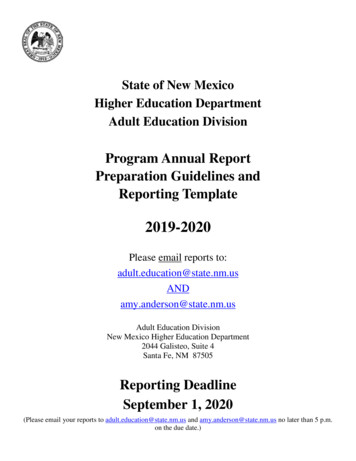

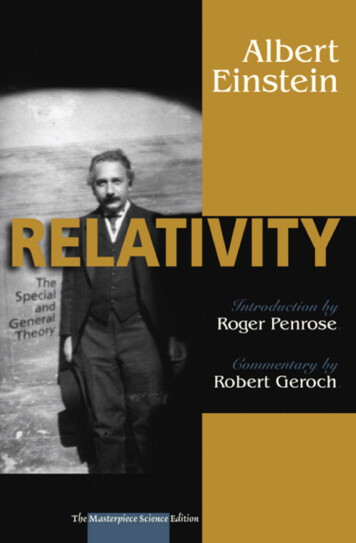
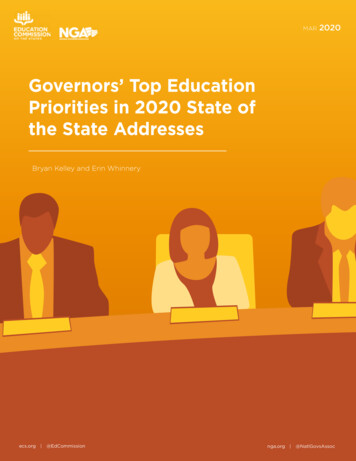
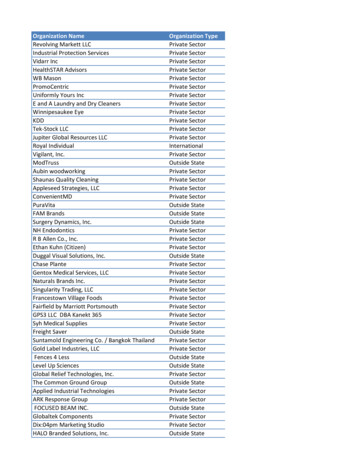
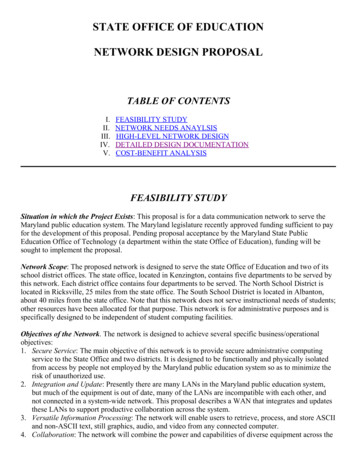


![Office 2010 Professional Plus Com Ativador Serial Keyl [EXCLUSIVE]](/img/61/office-2010-professional-plus-com-ativador-serial-keyl-exclusive.jpg)
